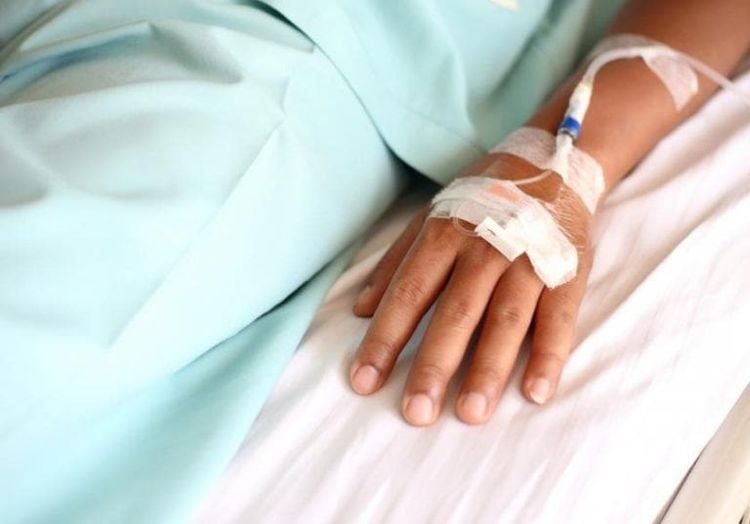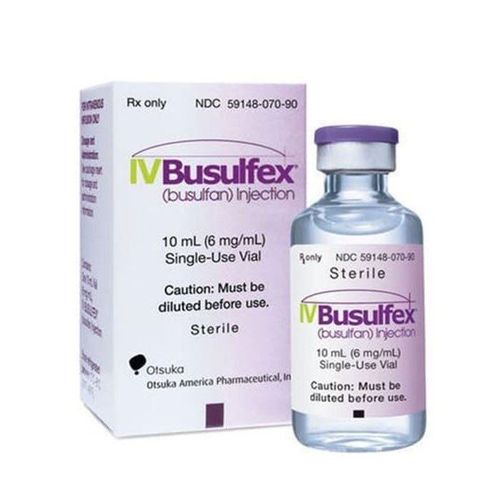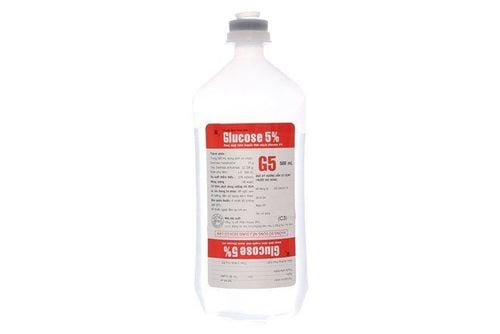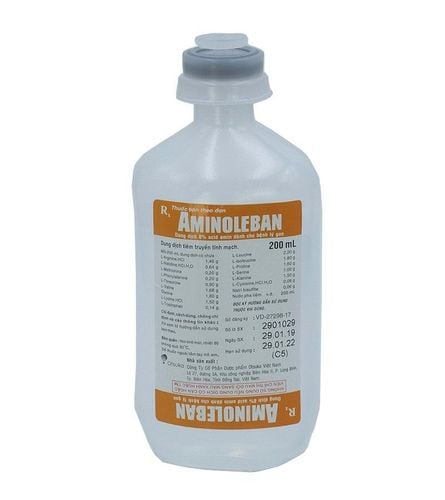This is an automatically translated article.
Vectibix (Panitumumab) is used to treat a type of colon or rectal cancer that has spread to other parts of the body.
1. Uses of the drug Vectibix
Vectibix (panitumumab) is used in the treatment of patients with RAS wild type metastatic colorectal cancer (cancer that has spread outside the colon and rectum). RAS status was determined by an FDA-approved test. Wild-type RAS is a cancer without mutations in the KRAS and NRAS genes.
Panitumumab is a man-made protein (monoclonal antibody) that binds to the epidermal growth factor receptor-EGFR.
Vectibix® can be used:
As first-line chemotherapy called FOLFOX (folinic acid, fluorouracil, oxaliplatin) As a first-line treatment, monitor disease progression with the following chemotherapy therapies : fluoropyrimidine-, oxaliplatin- and irinotecan-containing chemotherapy. Vectibix is not used to treat patients with tumors that have mutations in the RAS gene (called RAS mutations), or when the RAS mutation status is unknown. Talk to your doctor about your RAS status.
2. How to use Vectibix
Vectibix must be administered as an intravenous infusion via an infusion pump for a 14-day course or as directed by a physician.

Thuốc Vectibix được truyền tĩnh mạch vào cơ thể người bệnh theo chỉ định
3. Vectibix side effects
In patients treated with Vectibix, the most commonly reported adverse events (in 20% or more of patients) were various types of skin rash, infection on the nail edge of the finger or finger. legs, fatigue, nausea and diarrhea.
In a clinical study, nearly all patients (90%) taking Vectibix had a skin rash or other skin reaction. Skin reactions include, but are not limited to:
Acne-like skin rash Itching Skin redness Skin rash Peeling Peeling Nail and foot infections Dry skin Of these patients, 15% had a severe skin reaction. , for some people, pain, deformity, ulceration, or loss of the outer layer of skin with Vectibix alone. Some patients with severe skin reactions also develop infections in the blood, skin, fat or tissue that sometimes lead to death.
Your doctor may need to change your dosage to address your side effects or, in the case of serious or life-threatening side effects, stop Vectibix treatment. It is important that you tell your doctor right away if you have any skin reactions or any signs of infection (such as chills, fever, redness or swelling of an existing skin reaction). ).
Some patients taking Vectibix may have low levels of electrolytes: magnesium, calcium, potassium. Your doctor may check the levels of these electrolytes in your blood while you are on treatment and for up to 2 months after treatment ends.
4. Be careful when using the drug Vectibix
Vectibix is given intravenously. Some patients may develop infusion reactions, which can be serious and, in rare cases, fatal. In a clinical study, infusion reactions developed in 4% of patients and 1% of patients experienced a serious infusion reaction. Infusion reactions include: fever, chills, throat constriction, dyspnea, hypoglycemia. Depending on the severity of the reaction, your doctor may decide to slow the rate of your infusion, stop the infusion, or stop your Vectibix treatment altogether.
Vectibix có thể gây sốt cho một số người bệnh sau khi dùng
Lung disease, including fatal lung disease, occurred in 1% or less of patients who received Vectibix. Tell your doctor if you have breathing problems, wheezing, or a cough that doesn't improve or keeps coming back. If you have had lung problems in the past, tell your doctor. Your doctor may decide to stop treatment with Vectibix.
Being in the sun can make skin reactions worse. Wear sunscreen and protective clothing (such as a hat) and avoid direct sunlight while you are having treatment with Vectibix. Tell your doctor if you have new or worsening skin reactions.
Vectibix may harm an unborn baby. Use effective birth control to prevent pregnancy while taking Vectibix and for at least 2 months after the last dose.
Vectibix may pass into breast milk. Therefore, breast-feeding is not recommended while using this medicine and for 2 months after the end of treatment.
Vinmec International General Hospital is a high-quality medical care address with a team of doctors and pharmacists with many years of experience and good expertise. When having health problems, customers can contact the hospital to be examined and have the best indications for taking medicine.
Please dial HOTLINE for more information or register for an appointment HERE. Download MyVinmec app to make appointments faster and to manage your bookings easily.
Reference source: webmd.com, vectibix.com












